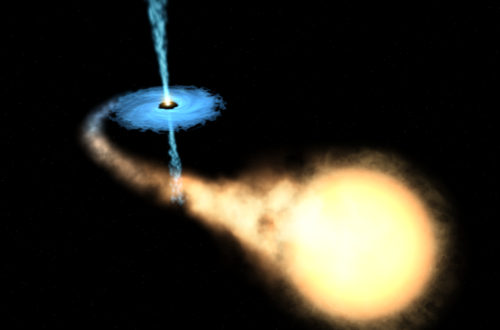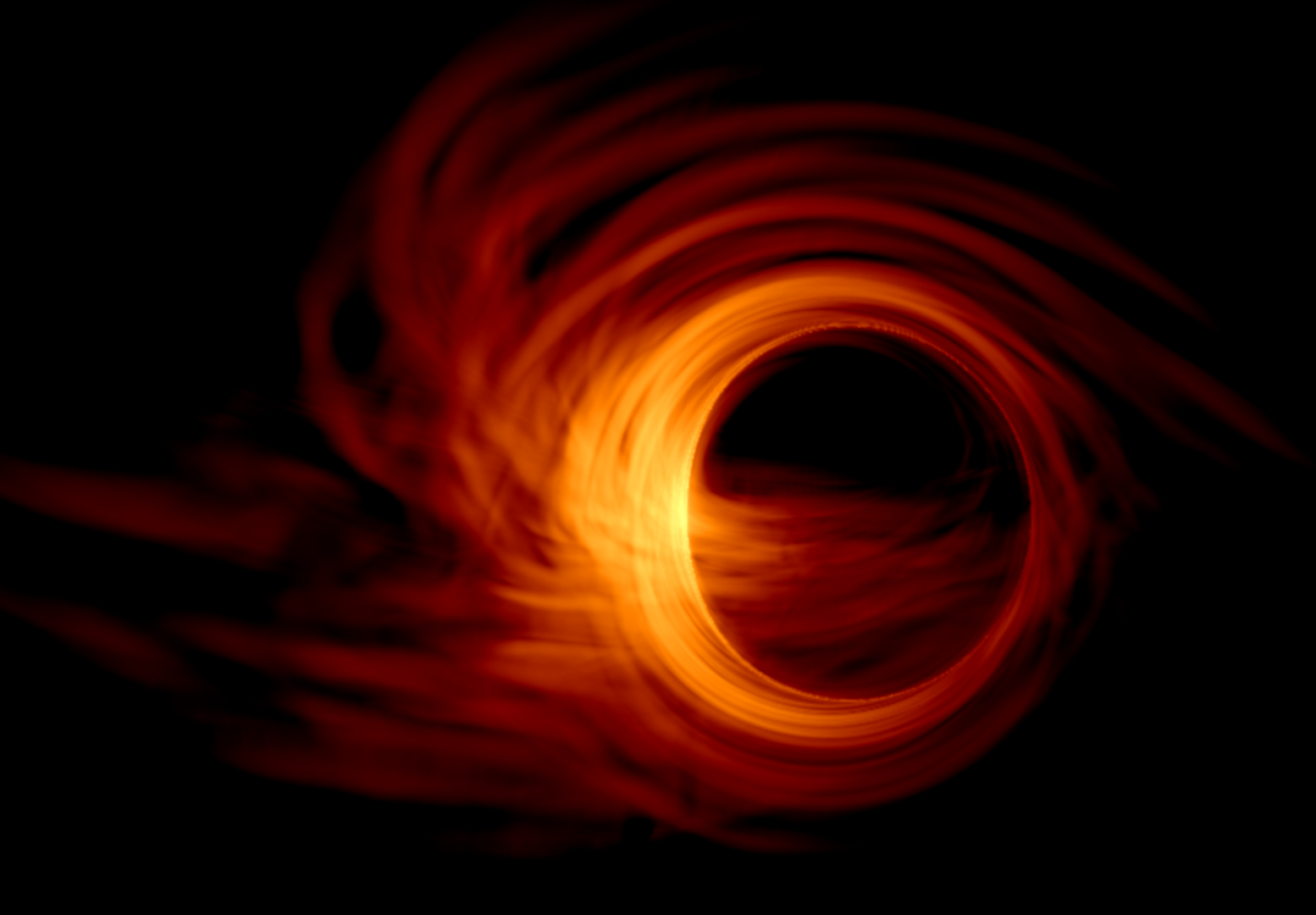I’m Matteo Lucchini and have been working as a PhD student in Sera’s group for almost two years now. Like everyone else in the group I focus on figuring out what black holes do, but for this blog post I thought I would write something a little different (and ever so slightly romanticized).
Very often, scientists are asked “what is your research for? Does it have any practical use?” It’s really a perfectly legitimate question, and one that I think doesn’t quite address what the point of science is. In some fields, say medical research, it’s very easy to answer (“my research will help in fighting a horrible disease!”) but things like physics, astronomy, or even more abstract disciplines like math or philosophy aren’t quite as easy to “sell”. Indeed, if you feel masochistic enough to scroll through enough Facebook comments on some scientific post, you will inevitably encounter plenty of people saying stuff like “this is useless when there are children starving in Africa”. In my opinion, there really are three things we all gain from scientific research; all of these things together are what make science worth doing. It is also my personal opinion that one of them isn’t quite as important as the other two.
The first, obvious thing is the technological fallback of research – any research, even what seems utterly inapplicable to the real world at first glance. There are many obvious examples, so I´m just going to list a couple of my personal favorites:
a) In mathematics there is a concept called a “Fourier transform” – the basic idea is that you can take any mathematical function (say, a parabola plotted on a graph) and represent it as a sum of many waves, sins and cosines, with different frequencies and amplitudes. It´s kind of a cool concept, but it seems completely irrelevant to the real world right? What is amazing about Fourier transforms is that they have all sorts of real world applications. For example, instead of picking a parabola as your function, you could pick the information stored in a file on a computer´s hard drive, say a png image. Taking the Fourier transform of an image will tell us which of those waves carry important pieces of information (those that have a large amplitude), and those that don´t (the ones with a small amplitude). We can then get rid of most of the small waves that don’t carry much useful stuff, and voit-la: our file has less stuff in it; we have lost some quality and detail in the image, but we have gained a lot of hard drive space. That is (more or less) how the jpg image format was born! We have taken a very abstract mathematical idea born around 1800, and got something incredibly useful out of it in a wholly unrelated field that didn’t even exist when Fourier was alive.
b) By now we are all used to having phones with amazing computational power. The only reason we ever figured out how to build such powerful devices is that we understand the laws of physics that govern the motion of electrons in a silicon chip – and those rules are quantum mechanics, something that everyone (physicists included!) finds very confusing and complicated. The concept that the motion of a particle is described by a complex-valued probability amplitude defined in an L2 functional space (sorry for all the jargon, it’s only there to drive home how complex quantum mechanics is!) seems too abstract to be useful, yet as we understood more of those complicated laws, we also learnt how to build interesting objects that use those laws to make our lives better.
c) Going on with phones, digital cameras are a direct product of astronomical research. The first application of the same technology used in digital cameras was telescope detectors!
d) If physicists hadn’t figured out anything about thermodynamics we wouldn’t know how to build fridges in order to preserve food more effectively.
b) By now we are all used to having phones with amazing computational power. The only reason we ever figured out how to build such powerful devices is that we understand the laws of physics that govern the motion of electrons in a silicon chip – and those rules are quantum mechanics, something that everyone (physicists included!) finds very confusing and complicated. The concept that the motion of a particle is described by a complex-valued probability amplitude defined in an L2 functional space (sorry for all the jargon, it’s only there to drive home how complex quantum mechanics is!) seems too abstract to be useful, yet as we understood more of those complicated laws, we also learnt how to build interesting objects that use those laws to make our lives better.
c) Going on with phones, digital cameras are a direct product of astronomical research. The first application of the same technology used in digital cameras was telescope detectors!
d) If physicists hadn’t figured out anything about thermodynamics we wouldn’t know how to build fridges in order to preserve food more effectively.
e) In the late 1960s physicists were looking to develop an effective method to communicate and share data over long distances, so they figured they might as well network their computers together, which is definitely more efficient than traveling in person (or having grad students do it!). That network eventually developed in the Internet!
f) Today we are all used to GPS devices that use satellites to track our position. What most people don’t know is that the signals sent by satellites are affected by the Earth’s gravitational field, and if it wasn’t for Einstein’s theory of General Relativity, those signals would accumulate an error of about 18km per day. That means that within one month of buying your new car, you could turn its GPS on in Milan and it would tell you you’re in Rome.
These are just a few examples, but I hope they are enough to convince you that even the most abstract of theoretical ideas can eventually find its way in every day use, in ways that no one can predict when those ideas are first discovered. Without the most basic and abstract science, technology wouldn’t exist; this is the main “selling point” used to argue for the value of research. My (quite controversial) opinion is that technological fallback isn’t the most important thing we gain out of research, and there are two more unique things that I feel aren’t mentioned enough.
The second benefit of science is the spirit of international, peaceful collaboration it fosters. Researchers work together and collaborate with colleagues from all over the world, in a way that is unique to science alone, simply out of a desire to overcome the most complex challenges we can think of. Most of us have lived and have friends in multiple countries and/or continents; over the course of our careers we form relationships with people from completely different cultures and personalities, simply because we all like looking at things in the sky, or searching for the tiniest subatomic particles, or digging for dinosaur bones, you name it. I can´t really think of almost any other human endeavor that pulls together so many people from so many different places.
The third and in my opinion most important product of science is, for lack of a better word, beauty. In my mind, science and art are extremely similar to each other. Personally I do this job because I find figuring stuff out is as beautiful as listening to my favorite songs or watching a great movie; I love the international spirit, the challenges, and I guess if my research ends up being somehow useful that’ll be cool, but that is not why I get out of bed every morning. I do it because I love the moment of discovery, when I’m the first (or I think I’m the first) to know something about nature that no one knew a few seconds ago. It doesn’t stop there either: science is not only beautiful for the people that do it, but thanks to outreach it does the same (or should, scientific outreach isn’t easy!) for the general public. Not many people can remain indifferent when looking at an image of a galaxy or stellar cluster; they may not understand what they are seeing in the way an astronomer does, but that doesn’t take away the sense of beauty one gets, it just makes it different. It’s really similar to how music can be perceived – a musician may listen to something and catch all the nuances in a song that the rest of the audience may miss, but if the music is good, both the musician and regular listener will enjoy it.
In this sense, asking “what is research for and why are you a scientist?” to me isn’t that different from asking “what is art for and why are you an artist?”



